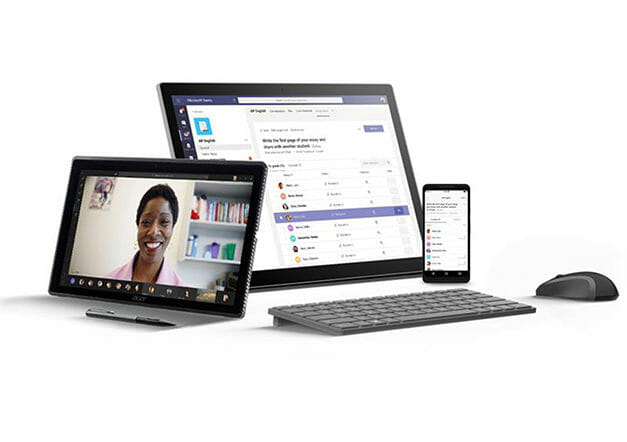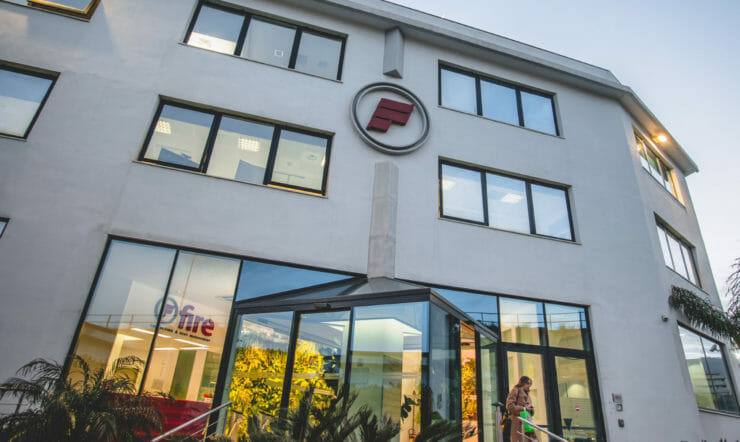CFOs emerging as transformation leaders – tackling risk and optimizing for growth
When I speak to my peers, I realize that CFOs, especially now, are being called upon to help respond to today’s challenging economic environment.
From inflation, the energy crisis and rising labor costs, all are putting a squeeze on both the top and bottom line. With so much continuing fluidity, we as finance leaders are being asked to find ways to optimize costs while prioritizing investments that will drive the most powerful business outcomes.
At the same time, we are also looking at ways to mitigate external risks. This includes tackling increasing cybersecurity threats, ensuring compliance with an ever-evolving legislative landscape and meeting the expectations of stakeholders who are increasingly discerning when it comes to ESG reporting.
A white paper we recently published called the 2023 Future of Finance Trends Report shows 80% of finance leaders believe they’re being increasingly challenged to add value beyond their traditional responsibilities. Some 79% believe that they and their teams must play a significant role in driving business innovation and overall business transformation.
With all of that said, it’s little wonder that I’m seeing CFOs now at the helm as their organizations shift to the cloud – the foundational step to becoming data-led and driving innovation. CFOs leadership here stands to reason, as the financial benefits of this transformation directly map to our priorities.
Embracing the cloud represents a shift from CAPEX to OPEX, lowers financial risk, optimizes cash flow, and can unlock new business value. According to an IDC report, organizations moving to the cloud have seen an overall cost-savings of 37%, with a 30% reduction in hardware costs and a 16% savings on facilities and utilities.
Today’s CFO is becoming data-led
As companies move to the cloud it creates the opportunity to unlock new business value. For the finance department this includes using AI tools and data in new ways to help provide insights to optimize cost savings and reinvest for growth. Some 82% of finance leaders cite AI and automation as being very important in helping their teams play a bigger role in supporting the strategic goals of the organization.
At Microsoft, we’re using AI-powered automation tools to equip our finance teams with timely, accurate data and free people from time-consuming manual processes. The technology our finance team has created “in house” has saved us 977+ hours of manual labor annually, provided $25 million in savings and has boosted our teams’ productivity levels.
It’s super important to note that you don’t have to be a technology company – or a tech expert – to drive innovation as you look to automate and become data-led. In fact, with low code technology you can empower members of your team to develop their own innovation.
At Bayer, two citizen developers on the finance team – with zero IT background – developed their own app that provided a centralized dashboard for financial data. This tool eliminated the need for the finance team to manually track KPIs across multiple online and manual reports.
One of the developers, Portfolio Manager Matthias Eisenack stated: “The Power BI dashboard is a game-changer for us. It enables self-service for our CFO for overseeing the business, and also to present financials in real time to stakeholders, such as the board.”
Innovation is also helping us deal with increasing business complexity. Meeting sustainability goals, ensuring compliance with all local EU-level regulations, and meeting the changing expectations of workers are just a few variables at play here. So, how do we as CFOs ensure we continue accurately forecasting and assessing risk?
Netherlands-based bank ABN AMRO transformed with the goal of turning its data into rich insights to equip leaders to more accurately predict, plan and execute. In moving to the cloud, the company is now able to use AI tools to crunch massive data sets to do that just that.
Piethein Strengholt, the company’s Principal Data Architect noted after adopting Azure: “There’s so much data processing and analytics we can do, making predictions, doing all kinds of complex calculation.”
In summary, there is an immense opportunity for CFOs to drive efficiencies while laying the groundwork for innovation. We are emerging as true agents of change and we are at the forefront of showing how data coupled with strategic thinking can fuel growth and profitability.
For my peers out there looking for a deeper-dive on how innovation is changing the role of the modern-day CFO, the 2023 Future of Finance Trends Report offers fantastic, fresh insights.






















